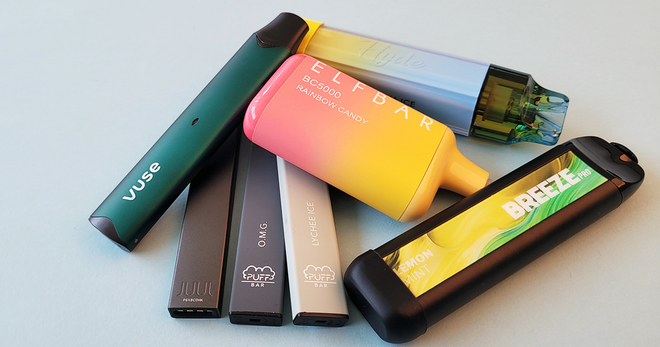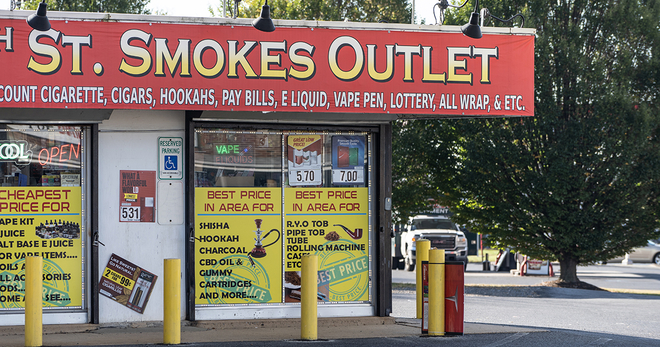Misplaced trust in tobacco companies tied to nearly doubled odds of vaping in young people
Young people had nearly twice the odds of using e-cigarettes if they thought that tobacco companies don’t want young people to try vaping so they will start smoking or if they believe that tobacco companies are honest about the harm presented by e-cigarettes, according to a new study conducted by Truth Initiative with researchers from George Washington University published in Drug and Alcohol Dependence. Young people were also 45% more likely to use e-cigarettes if they mistakenly believed that e-cigarette and cigarette companies were different entities, compared to those who knew they were the same, suggesting that illuminating the relationship between e-cigarette and cigarette companies and unveiling other deceptive tobacco industry marketing practices may be key in convincing young people not to vape.
As tobacco companies roll out e-cigarettes and other non-combustible products, they are trying to transform their image with claims that they can be part of the “public health solution” to end smoking. The tobacco industry is making these claims while putting a new generation at risk of nicotine addiction and continuing to sell cigarettes, which remain the country’s leading cause of preventable death.
Previous research shows that anti-industry sentiments protect against smoking, but the relationship between industry beliefs and vaping isn’t clear. Truth Initiative researchers surveyed a nationally representative sample of nearly 10,000 young people between ages 15-28 in 2019 to determine how young people’s beliefs about the e-cigarette industry were related to e-cigarette use and susceptibility to use e-cigarettes in the future.
Believing e-cigarette and cigarette companies are different increases odds of vaping
Historically, e-cigarette and cigarette companies have been nearly synonymous: the vast majority of all e-cigarettes sales from the top 25 e-cigarette manufacturers in 2018 were from brands owned either in whole or part by the tobacco industry, according to past Truth Initiative research.
The current study found that only about 30% of survey respondents knew that e-cigarette and cigarette companies can be one and the same, regardless of whether they had ever used e-cigarettes in the past.
The lack of knowledge in this age group is especially concerning given that belief that the companies were different was associated with 45% increased odds of currently using e-cigarettes and higher susceptibility to use e-cigarettes among those who had used e-cigarettes before.
The ability to recognize that e-cigarette and cigarette companies are the same is key in raising broader awareness among young people that some e-cigarette companies have misrepresented their products in the past. Most recently, the tobacco industry has tried to overhaul its image with offers of non-combustible tobacco product alternatives and claims that the industry can be part of the “public health solution” to end smoking.
Researchers gauged survey respondents’ beliefs about the tobacco and vaping industry by asking to what extent they agreed or disagreed with the statements, “Vaping companies lie about the harmfulness of their products” and “Tobacco companies want young people to try e-cigarettes/vapes so they will start smoking.” Survey respondents who believed that the companies were different or did not know their relationship had significantly lower odds of believing that vape companies both lie about the harm of their products and that e-cigarette companies want young people to vape, compared to those who knew that e-cigarette and cigarette companies were the same. Young people who did not believe that vape companies lie about harm also had greater susceptibility to use e-cigarettes among those who had previously used e-cigarettes.
Misplaced trust in tobacco companies tied to nearly doubled odds of vaping
Not knowing the true relationship between the makers of e-cigarettes and cigarettes was just one area of concern. Young people who disagreed that tobacco companies want young people to vape or that tobacco companies lie about the harm presented by e-cigarettes had nearly twice the odds of using e-cigarettes.
The good news is that most young people don’t trust the makers of e-cigarettes. The study also found that over 90% of survey respondents believed that vaping companies lied about harm and more than 80% believed tobacco companies want young people to try e-cigarettes. The findings are in line with past Truth Initiative research: a 2019 report found that most Americans strongly distrust the tobacco industry, and a recent survey found that 70% of young adults respondents believed that tobacco companies do not tell the truth about the addictiveness of their products.
Need for increased messaging around the truth behind e-cigarette marketing
Although mistrust in the makers of e-cigarettes is high, the connection between lack of awareness of the e-cigarette industry’s identity and higher odds of vaping means there is more to be done. “Highlighting e-cigarettes’ connection to Big Tobacco may be an important strategy to prevent youth and young adult e-cigarette use,” the authors write.
The truth® campaign has actively worked for decades to draw attention to the tobacco industry’s dishonest marketing tactics. The most recent campaign – a tongue-in-cheek ad campaign that follows a marketing executive as he tries to “sell depression” in the form of an e-cigarette called Depression Stick – highlights the tobacco industry’s on-going attempts to distort public perception about the health effects of vaping products.
Research shows that truth campaigns are increasing knowledge and moving youth in the right direction when it comes to vaping. Truth Initiative research published in 2021 found that young people with strong truth brand awareness and loyalty had lower odds of vaping and intending to vape a year and half later, and that young people who had seen truth vaping prevention campaigns were more likely to have accurate e-cigarette knowledge, believe that e-cigarettes were harmful and socially unacceptable, and hold anti-tobacco industry attitudes compared to those unaware of the campaign. Vaping prevention campaigns build on past successes of truth campaigns focused on changing smoking behavior, with research showing that young people with greater awareness of the truth campaign are less likely to become smokers over time.
The authors write that their findings “…point to an opportunity for public health practitioners to increase awareness about the connection between cigarette and e-cigarette companies to help reduce use and susceptibility among young people.” They suggest that in addition to increasing messaging, there is a strong need for policies that push for transparent marketing in tobacco products to prevent youth e-cigarette use in young people.
More in tobacco industry marketing
Want support quitting? Join EX Program
By clicking JOIN, you agree to the Terms, Text Message Terms and Privacy Policy.
Msg&Data rates may apply; msgs are automated.


